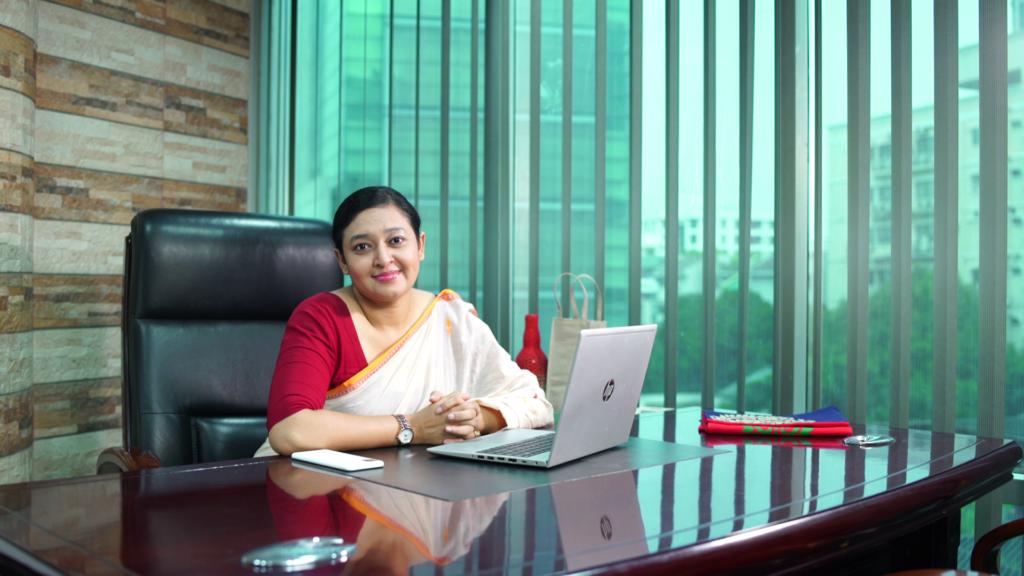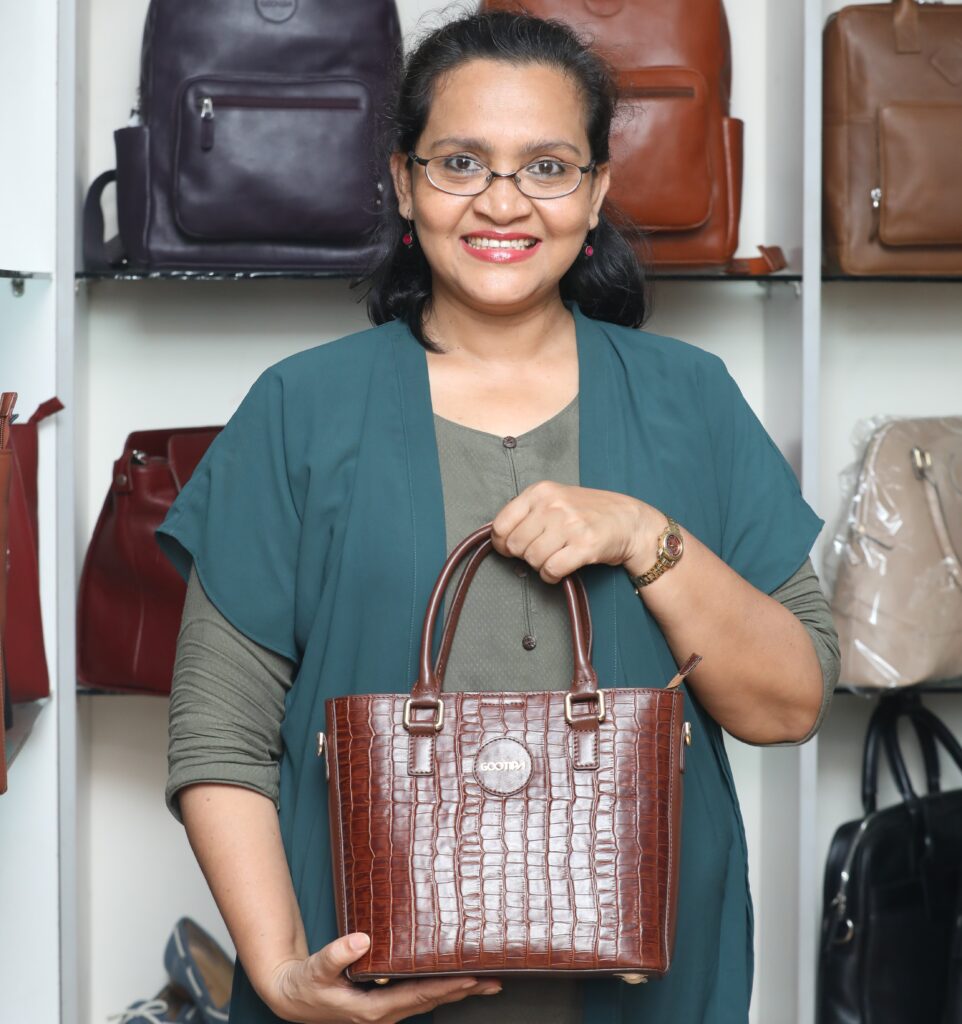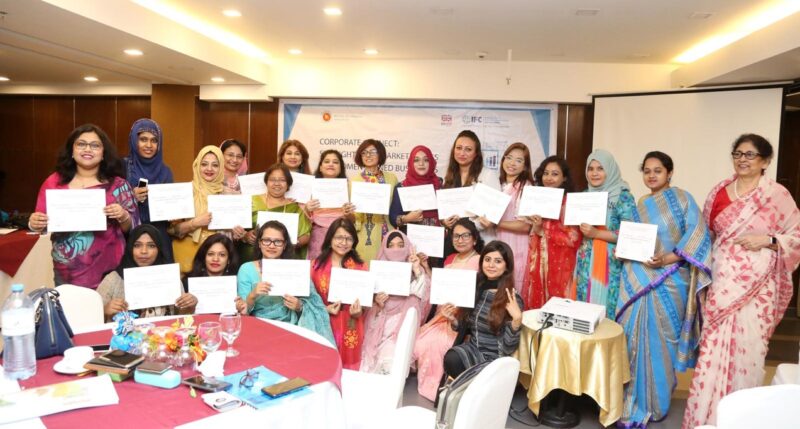Bangladesh has been hit hard by the COVID-19 pandemic, and as a result, many small and medium-sized enterprises and women-led businesses in particular are facing significant disruptions in supply and demand. Through ‘Corporate Connect’, a program by the World Bank Group and implemented by WEConnect International and Dhaka-based North South University, women entrepreneurs in the country are receiving training to expand their business skills and gain access to a new networking platform for new market opportunities.
The World Bank Group We-Fi program in Bangladesh brings together the World Bank and IFC to leverage public and private sector initiatives to enable women entrepreneurs to start and grow firms. The project in the country goes beyond training women entrepreneurs. It also includes educating larger corporations and stimulating corporate sourcing from Bangladeshi women-led SMEs; establishing an online procurement platform, and addressing related business regulations limiting women led-SMEs.
Mashraka Binta Mosharraf’s firm, Eco Monarchy Limited, produces ‘golden’ fiber-based hand-crafted accessories, using a typical signature fabric of Bangladesh. The entrepreneur wants to increase the brand value of the “Made in Bangladesh” label to promote the country’s uniqueness. So, she started her journey with jute, a long, soft, shiny fiber that is spun into coarse threads.

Mashraka Binta Mosharraf, CEO of Eco Monarchy Limited
“Our goods include home decor items, cushions, curtains, bags, corporate gifts, and packaging items with jute,” explains Mosharraf.
Before taking part in the Corporate Connect program, the entrepreneur says she struggled to overcome many obstacles and challenges in business. She aspired to gain business knowledge and skills to become a more successful entrepreneur.
“The Corporate Connect project has helped me with business skills by providing trainings in accounting and finance, HR management and business pitching,” according to Mosharraf.
The training also provides participants with an opportunity to become part of a national and international database for business opportunities and networking, as confirmed by other participating women entrepreneurs.
Taslima Miji explains how the program helped her company GOOTIPA to market its leather goods to overseas markets like Canada, Germany, the Netherlands, and the US.
“GOOTIPA is a sustainable brand that works in an environment-friendly way,” says Miji. The manufacturing site based in Hazaribagh, Dhaka, employs 50 workers of which 60 percent are women.

Taslima Miji, CEO of GOOTIPA
“I participated in a training of Corporate Connect in 2020,” she recounts, adding that participating in the training provided a rare opportunity to interact with the leading corporate business executives in the country.
“For women entrepreneurs, I think Corporate Connect is a very effective platform for networking and capacity building along with developing talents in the business,” says Miji.

